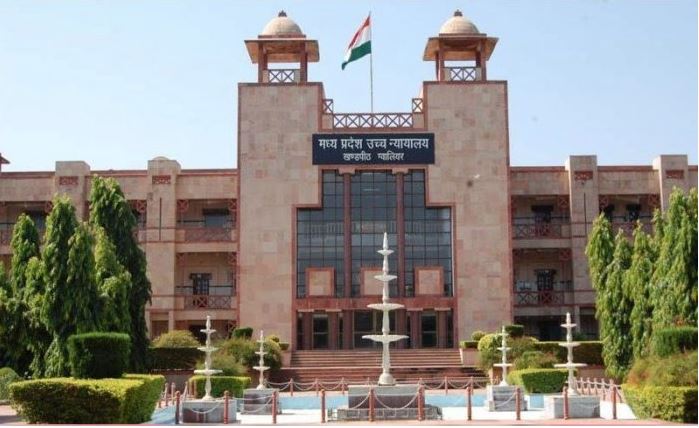The Madhya Pradesh High Court has recently dismissed a petition challenging the validity of Rule 11(7)(4) of Madhya Pradesh Rajya Schools Shiksha Sewa (Shekshanik Samvarg Sewa Sharte Bharti Niyam), 2018. The HC observed that the validity of any rule can be challenged only if it is shown that the authority lacked the power to frame such rule.
The aforesaid rules have been framed by the Madhya Pradesh Government in exercise of power conferred under the proviso to Article 309 of the Constitution of India to regulate the conditions of service and recruitment to the cadre of school teachers.
The said Rule assailed in the petition provides that in the direct recruitment on the post of Teachers, 25% of the vacancies shall be reserved for candidates of such of guest faculty teachers, who have worked for minimum three years and completed minimum 200 days of teaching in Government Schools as guest faculty.
The contention of Counsel for the Petitioners is that the aforesaid rule overruled the criteria of seniority-cum-merit and have brought all the guest faculty teachers, irrespective of length of their working, in the same category thereby treating unequals as equals. Thus, the rule is discriminatory and violative of Article 14 of the Constitution of India.
There are many Guest Faculty Teachers who have completed a period of seven years. They can be bracketed with those who have merely completed three years. The Government had earlier issued a circular dated 17/03/2015 providing for the weightage system in the competitive examination held for direct recruitment. Clause 6.2 of the said circular provided that those who have completed 200-399 days will be entitled to 5 weightage marks and those who have completed for 400-599 days will be entitled to 10 weightage marks and such guest faculty teachers who have completed more than 600 days will be entitled to 15 weightage marks.
Counsel for the Petitioners, therefore, submitted that the impugned rules be declared ultra vires Articles 14 and 16 of the Constitution of India.
Pushpendra Yadav, Additional Advocate General argued that the Government had purposely amended the rules to provide opportunity to all such Guest Faculty teachers who have worked for three years and more as ultimately all of them have to face a competitive examination. Although in the impugned rule, earmarking of 25% posts for Guest Faculty Teachers has been described as reservation but in the strict sense of the word it is not reservation. It is the only source of recruitment. In other words, Guest Faculty Teachers, who have completed three years and more, have been identified as a separate class. Their eventual selection would depend upon their inter se merit prepared on the basis of competitive examination.
The Jabalpur Division Bench comprised of Chief Justice Mohammad Rafiq and Justice Vishal Dhagat, having heard Counsel for the parties and perusing the impugned rule, found that it is essentially a matter of legislative policy of the State to decide as to in what possible manner, the interest of those who are working as Guest Faculty Teachers for a quite some time is safeguarded.
The respondents have abandoned the policy of allowing weightage of 5, 10, 15 marks respectively, earlier in vogue by means of executive instructions. Now the rules have been framed to provide for 25% of vacancies exclusively for the category of Guest Faculty Teachers who have worked as such for three years and more to compete for direct recruitment. It cannot be said that the State Government is not competent to frame such Rules. Even otherwise the Petitioners are not canvassing the argument about the lack of competence on the part of the State Government in framing such rule, the Bench held.
The Bench observed that it is trite that the validity of any rule can be challenged only if it is shown that the rule making authority lacks the power to frame the rules or the rule is so arbitrary and discriminatory that it cannot stand the judicial scrutiny of reasonableness on the anvil of equality clause contained in Article 14 of the Constitution of India.
“It cannot be said that the impugned rule is treating unequals as equals, as all the Guest Faculty Teachers, those who have completed three or more years, broadly fall in the same category and constitute a homogeneous class. All have been provided the similar facility of facing competition and get selected against 25% quota earmarked for them on the basis of their merit. We therefore decline to uphold the argument that it is ultra vires Articles 14 and 16 of the Constitution of India. In our view, classification of this category of Guest Faculty Teachers is based on an intelligible differentia and has a reasonable relationship with the object sought to be achieved,” the order reads.


